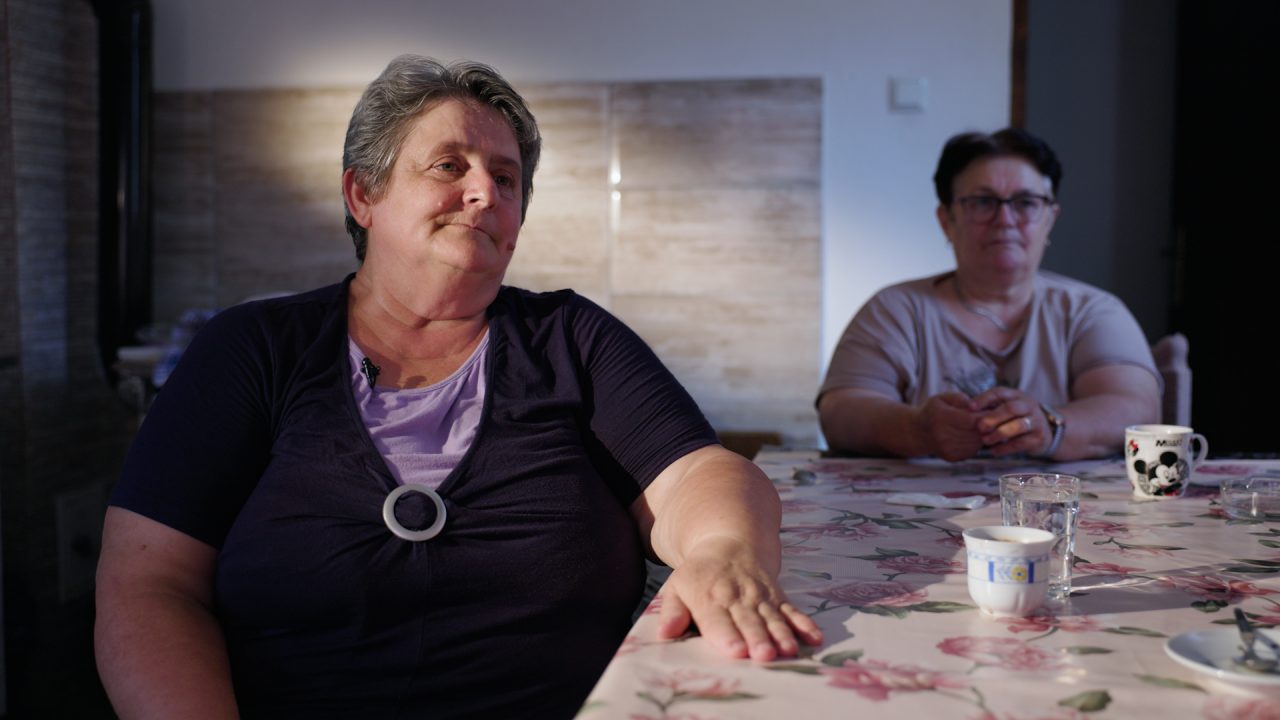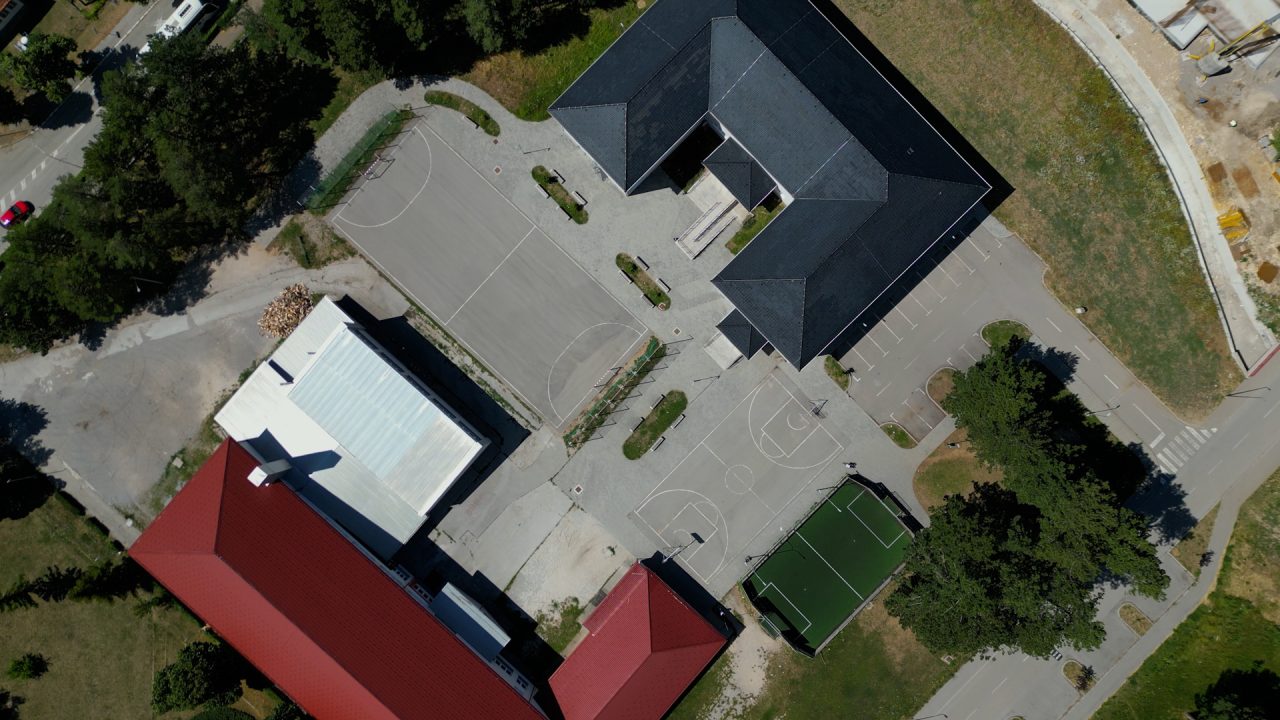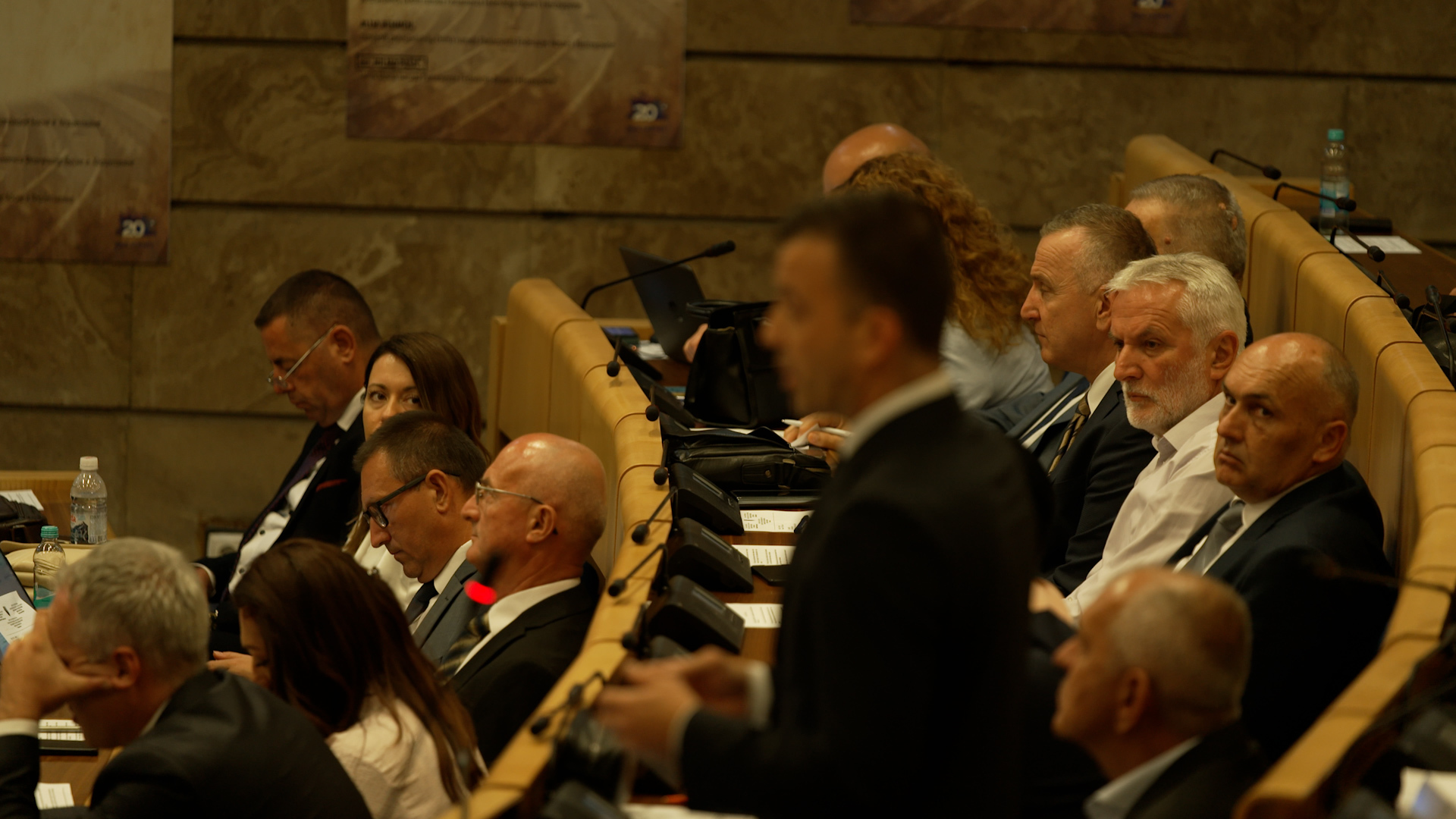This post is also available in: Bosnian
In 2016, a Bosnian Serb called Dejan Laganin gave evidence via video link during the Sarajevo trial of three men accused of war crimes against Serb detainees in Livno, in the west of Bosnia and Herzegovina, during the 1992-95 Bosnian war.
According to the verdict in the case, the detainees were held in a school and “subjected to various forms of mental and physical abuse on a daily basis”; some were put to work, some were taken away and “never returned alive”.
In his testimony, Laganin described being electrocuted and physically abused. “They would connect us to electricity,” he said. “They would kick us, beat us and mistreat us. They cursed our Chetnik mothers. They did all sorts of things. They kept us hungry and thirsty and so on.”
Asked who interrogated and abused him, Laganin named two of the defendants, Zdenko Andabak and Muamir Jasarevic, as well as a third man he identified as “Konta”.
Since 2022, Bosnian Croat Dragan Konta has represented Livno Canton in the parliament of the mainly Bosniak and Croat Federation entity, one of two entities that make up Bosnia.
He was elected on behalf of the Croatian Democratic Union party, HDZ, despite the judge in the 2017 trial identifying him as the commander of the military police company stationed at the school in Livno where the Serbs were held.
Prosecutors in the case had named Andabak as the commander, but in his verdict, judge Zoran Bozic said, “it clearly follows from material evidence that witness Konta was commander of the Military Police Company as of July 1, 1992”.
Konta, 62, appeared in the trial, but only as a witness; he is again a witness in another ongoing trial for crimes committed in the school in Livno.
Andabak was acquitted in 2017, while Jasarevic and the third defendant, Sead Velagic were convicted of war crimes against the civilian population and sentenced to 18 months and 12 months in prison respectively. Konta, meanwhile, has never been investigated or charged with any crime in Livno.
“I do not feel any burden at all, nor do I worry about any investigation or investigative actions in relation to me,” Konta told BIRN.
But Azra Miletic, a retired State Court judge, said the prosecution had failed to do its job.
“And this means: if there is evidence, at least carry out an investigation,” Miletic told BIRN.
“Now, the other question is why it wasn’t done. Was it an oversight? Was it due to lack of knowledge? Was it negligence? Or perhaps even intentional action? That’s already a completely different matter.”
Who was in charge?

Dobrinka Saponja and Nedjeljka Akik. Photo: Detektor.
According to the 2017 court verdict, Serb civilians in the Livno area were arrested in early August 1992; they were held in the gym and interrogated in another room.
In an interview with BIRN, Konta said he considered the detainees “military personnel dressed as civilians”. He never witnessed any abuse, he said, and denied taking part in any “interrogation or torture”.
“I can say, and I stand by my word that I am sure that not a single Serb has made a statement accusing me in any way,” he said.
Konta has never denied being in the school in Livno during the war, but says he was not in charge of the military police.
The verdict, however, clearly stated: “At that moment, the Military Police was at the level of a company whose commander was Dragan Konta,” citing criminal reports at the time signed by Konta as commander.
Konta told BIRN he was a squad commander and shift commander, nothing more; they took orders from the Battalion Command and the Crime Service. “This is how it functioned,” he said.
Asked to name his superior, Konta replied: “Zdenko Andabak was the commander of all levels of the Military Police that were stationed in Ivan Goran Kovacic school.”
Andabak declined to comment for this story.
Whatever the truth, judge Bozic saw fit to note that Konta “was not asked at all about the circumstances of his position”, despite the evidence that he was in command.
Miletic, the retired State Court judge, said the message to the prosecution was clear.
“It is unusual for a trial chamber to state this so explicitly, be it in the main trial or in its verdict – essentially to instruct or to make a comment to the Prosecutor’s Office that it, so to speak, accused the wrong person or more precisely, that it did not accuse the right person, although certain evidence suggested that the person who should have been accused in such situation actually appeared as a witness,” Miletic told BIRN.
The State Prosecutor’s Office said it has no record of Konta as a suspect or accused in its war crimes files. The Office did not respond to a request for an interview concerning why Konta was never questioned as a suspect or investigated by prosecutors despite the 2017 court verdict and witness testimony.
Liquidation

School “Ivan Goran Kovacic” in Livno. Photo: Detektor
Laganin had more to say about the man he called “Konta”.
He described being told by another Serb detainee, Milun Bajilo, that he had been interrogated by Konta, who “forced him to confess”.
“He [Konta] then threatened him that he would pay with his life, and he did pay with his life,” Laganin told the court.
According to the 2017 verdict, Bajilo was one of 12 detainees taken from the school, killed, and tossed into a pit in Zastinje, near Livno. Another was Dragomir Bursac, who left for Rijeka, in Croatia, in 1991, and whose remains were only identified this year.
“Whenever there was a report on TV about exhumation, I would always shiver and be afraid, ‘Maybe he is here, or maybe here’,” said his sister, Dobrinka Saponja. “There was still a small ray of hope in my heart – ‘well, maybe he is alive’.”
The court verdict states: “The Chamber established from the evidence that these individuals suffered lethal consequences, given that their remains were found subsequently during an exhumation of a pit in Zastinje, the municipality of Livno.”
Aleksandar Radeta, a former member of the Commission for the Search of the Missing of Republika Srpska and the Missing Persons Institute of Bosnia and Herzegovina, was present at the Zastinje exhumation in Zastinje in 1999.
“The pit was approximately 18.5 metres deep, and when the team went down to the bottom of the pit, they discovered bones and bodies and waste and tires and all sorts of things dumped in there,” he said. “When we excavated the first few bodies and skulls, a penetrating bullet could be seen on top of one skull, showing that a liquidation had been carried out.”
Konta denied any knowledge of or involvement in the killing of the 12 or of having interrogated and threatened Bajilo. He was in Zagreb at the time, he said, and was told on his return that the 12 had been taken away for a prisoner swap.
“Everything else is untrue and there is no basis to accuse me of anything,” he said.
Radeta’s own parents were held in the school in Livno.
“Many of them were accommodated in the sports hall, and at one point, there were over three hundred of them, and there were just two mats and the wooden floor,” he said.
“They practically received one slice of bread each per day, and sometimes they did not get any food at all for two or three days.”
He said Konta had effectively been amnestied.
“Many people have been tried on the basis of command responsibility and convicted, but what happened here is practically an acquittal,” he said.
Hana Vranac contributed to this article.
